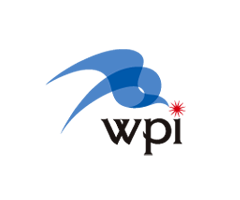News
October 25, 2024
The need for regulatory measures regarding exosome therapy
In a newly published paper, Professor Misao Fujita (CiRA and ASHBi, Kyoto University), Senior Assistant Professor Taichi Hatta (Shizuoka Graduate University of Public Health), Dr. Tsunakuni Ikka (National Cancer Center Japan), and Lawyer Tatsuo Onishi (MLIP Law Office) have pointed out the necessity of clarifying regulations for medical interventions using exosomes.

In Japan, despite the lack of established scientific evidence, exosomes, and similar substances are already being provided as therapy. Additionally, due to the lack of proper tracking, adverse events cannot be accurately monitored. The publication of this paper is expected to raise awareness about the need for regulation regarding exosomes and promote the development of regulatory measures to ensure patient safety and facilitate research and development.
The research was published online in the international scientific journal “Stem Cell Reports” on October 24, 2024 (UTC).
Globally, the provision of expensive interventions lacking established scientific evidence is a concern, and exosome-based medical interventions face similar challenges. Exosomes are tiny particles involved in cell-to-cell communication. They have attracted attention for their potential to develop new therapy and diagnostic methods. However, the Ministry of Health, Labour and Welfare has not approved any exosome-based interventions yet.
In the United States and the European Union (EU), strict regulations require scrutiny and approval by governments as biological agents or drugs when using exosomes for therapeutic purposes. Despite such regulations, there have been reports of dozens of clinics providing exosome therapy as mentioned below.
In Japan, even treatments without established scientific evidence can be provided at the discretion of physicians. According to a report by a research company in 2023, there were significantly more medical institutions (669) offering exosome therapy (including those involving stem cell culture supernatant containing exosomes) compared to countries in North America and Europe. These interventions were mainly offered for anti-aging, hair growth, and fatigue recovery purposes, with over 70% of medical institutions using the keyword “regenerative medicine” on their websites. Cases of patient deaths and continued therapy despite the exacerbation of cancer after administration have been reported in 2023. However, without clear regulations, there is no system to accurately track, understand, and evaluate such cases of adverse events, which jeopardizes patient safety.
To prevent such situations, there is an urgent need for prompt regulatory measures that protect patients while not hindering research development. This issue is not limited to Japan alone. In this paper, the authors mentioned the efforts of the Japan Society for Regenerative Medicine and the Japanese Society for Extracellular Vesicles and called for the leadership of International Society for Stem Cell Research to raise awareness of patient protection and clarify regulations in each country. Based on these discussions in the scientific community, it is necessary to consider appropriate regulations for exosome-based medical treatments in Japan.
The authors will continue to conduct research on the issue of expensive treatments lacking established scientific evidence being provided to patients and strive to deepen understanding among the general public through research activities and information dissemination.
Paper Information
Fujita, M., Hatta. T., Ikka, T.,& Onishi, T. (2024)The urgent need for clear and concise regulations on exosome-based interventions. Stem Cell Reports. DOI: 10.1016/j.stemcr.2024.09.008
